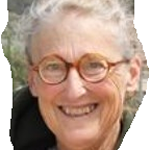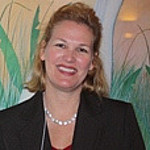A study conducted by Jennifer S. Hegeman found that integrating instructor-generated learning aids “not only placed a greater emphasis on conceptual understanding, but also positioned the course instructor prominently in the role of content provider, enhancing the course instructor’s teaching presence in the online environment” (Hegeman, 2015, p. 84 ). Therefore, best practices will be identified, such as chunking information, providing assignment support, providing an opportunity for students to ask questions, and being a part of the dialogue throughout the course. The use of tools such as Blackboard Collaborate, Screencastify, Flipgrid, Perusall, and podcasting will also be addressed.
A recording of this presentation is available.
Click the button to the right to access the session archive.




 Dr. Katherine Watson has been teaching French, English, ESL, linguistics, anthropology, and journalism for more than five decades, at first among farm laborers in picking fields, then in traditional classrooms, and ultimately online. She co-conceived, developed, and taught the first online adjunct to a telecourse offered by the Corporation for Public Broadcasting, Annenberg Learner’s French in Action. Then, she launched the first completely-online course in California’s Coast Community College District. Her publications have concentrated on language and thought, as they are transmitted and learned through time, space, and mode of delivery, as well as the transdisciplinary nature of learning. Dr. Watson is also a professional translator and interpreter and a swimmer in any sea.
Dr. Katherine Watson has been teaching French, English, ESL, linguistics, anthropology, and journalism for more than five decades, at first among farm laborers in picking fields, then in traditional classrooms, and ultimately online. She co-conceived, developed, and taught the first online adjunct to a telecourse offered by the Corporation for Public Broadcasting, Annenberg Learner’s French in Action. Then, she launched the first completely-online course in California’s Coast Community College District. Her publications have concentrated on language and thought, as they are transmitted and learned through time, space, and mode of delivery, as well as the transdisciplinary nature of learning. Dr. Watson is also a professional translator and interpreter and a swimmer in any sea. Dr. Cameron is a professor at Purdue University, Global and has been in education for over 25 years. She has taught in both online and on-ground settings. Dr. Cameron seeks to engage and inspire students by making education fun and interesting. She has won educational awards for innovation in the classroom.
Dr. Cameron is a professor at Purdue University, Global and has been in education for over 25 years. She has taught in both online and on-ground settings. Dr. Cameron seeks to engage and inspire students by making education fun and interesting. She has won educational awards for innovation in the classroom. Siobhán Ní Dhonacha is an Assistant Faculty Specialist for the Honors Program and Regents and Presidential Scholars, and a Truth, Racial Healing and Transformation (TRHT) Fellow. Indigenous Irish, Dr. Siobhán was born and raised in Dublin, Ireland.
Siobhán Ní Dhonacha is an Assistant Faculty Specialist for the Honors Program and Regents and Presidential Scholars, and a Truth, Racial Healing and Transformation (TRHT) Fellow. Indigenous Irish, Dr. Siobhán was born and raised in Dublin, Ireland.
 Dr. Jane Braaten Overmoe completed her doctorate after working as an instructional designer as well as a classroom teacher for three decades. She is veteran of 100 plays and musicals, mom to three and grandma to two lively grandsons.
Dr. Jane Braaten Overmoe completed her doctorate after working as an instructional designer as well as a classroom teacher for three decades. She is veteran of 100 plays and musicals, mom to three and grandma to two lively grandsons. Professor of Instructional Systems & Learning Technologies at Florida State University and Editor-in-chief of The Internet and Higher Education
Professor of Instructional Systems & Learning Technologies at Florida State University and Editor-in-chief of The Internet and Higher Education
 As an Instructional Technologist at Denison, Kelli Van Wasshenova works with faculty, staff, and students to develop a deeper understanding of how digital technologies can enhance learning experiences. Kelli helps faculty develop assignments and course curriculum that expose students to new technologies and digital tools, and she provides support to faculty for digital scholarship and research projects. In addition, she works hands on with Denison students on digital projects and class assignments, and she assists with mentoring the ETS student workers as they begin their careers working in technology.
As an Instructional Technologist at Denison, Kelli Van Wasshenova works with faculty, staff, and students to develop a deeper understanding of how digital technologies can enhance learning experiences. Kelli helps faculty develop assignments and course curriculum that expose students to new technologies and digital tools, and she provides support to faculty for digital scholarship and research projects. In addition, she works hands on with Denison students on digital projects and class assignments, and she assists with mentoring the ETS student workers as they begin their careers working in technology.
 Since joining the Denison community in 2001, Trenton (Trent) Edmunds has assisted faculty and staff in various technological endeavors in the classroom and in research. As part of Educational Technology Services (ETS), he works hands-on with faculty members in course design to incorporate digital tools with subject matter and pedagogical goals.
Since joining the Denison community in 2001, Trenton (Trent) Edmunds has assisted faculty and staff in various technological endeavors in the classroom and in research. As part of Educational Technology Services (ETS), he works hands-on with faculty members in course design to incorporate digital tools with subject matter and pedagogical goals.
 Ronald Tran is a junior at Denison University studying Economics. He currently works as a student employee for the school’s Educational Technology Services, working on the development of virtual reality applications for classroom uses.
Ronald Tran is a junior at Denison University studying Economics. He currently works as a student employee for the school’s Educational Technology Services, working on the development of virtual reality applications for classroom uses. Sandra Annette Rogers (aka Teacherrogers) has taught in a variety of K-16 educational settings from a rural hut in Honduras as a Peace Corps Volunteer to the University of California-Los Angeles Lab School as a Demonstration Teacher to elearning worldwide. She has taught bilingual elementary education, developmental reading, Spanish, and English for speakers of other languages (ESOL). She holds a K-12 bilingual (Spanish/English) teaching certificate from the California Commission on Teaching. She is a Quality Matters certified peer reviewer for online courses. She is also a Google Certified Educator. She is a content developer, instructional designer, researcher, and trainer. She has a doctorate in instructional design and a master’s in teaching ESOL. Her research interests include gaming, second language acquisition, and distance education. She currently serves as an instructional designer for UCLA’s Online Teaching and Learning Initiative. She will present on her recent publication, Curation of your online persona through self-care and responsible citizenship: Participatory digital citizenship for secondary education (2020).
Sandra Annette Rogers (aka Teacherrogers) has taught in a variety of K-16 educational settings from a rural hut in Honduras as a Peace Corps Volunteer to the University of California-Los Angeles Lab School as a Demonstration Teacher to elearning worldwide. She has taught bilingual elementary education, developmental reading, Spanish, and English for speakers of other languages (ESOL). She holds a K-12 bilingual (Spanish/English) teaching certificate from the California Commission on Teaching. She is a Quality Matters certified peer reviewer for online courses. She is also a Google Certified Educator. She is a content developer, instructional designer, researcher, and trainer. She has a doctorate in instructional design and a master’s in teaching ESOL. Her research interests include gaming, second language acquisition, and distance education. She currently serves as an instructional designer for UCLA’s Online Teaching and Learning Initiative. She will present on her recent publication, Curation of your online persona through self-care and responsible citizenship: Participatory digital citizenship for secondary education (2020).